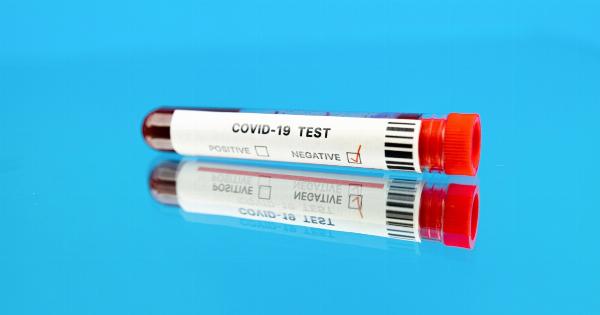Difficulty in breathing is a common symptom that people of all ages may experience. It can be caused by various health conditions, including problems related to the heart, lungs, and kidneys.
While these three organs are distinct in their functions, the symptoms of their dysfunctions can sometimes overlap, making it difficult to identify the underlying cause of breathing difficulties. In this article, we will explore the different aspects of heart, lung, and kidney problems that can lead to breathing difficulties and discuss how to differentiate between them.
1. Understanding the Heart-Related Causes
The heart is a vital organ responsible for pumping oxygenated blood throughout the body. When the heart encounters any issues, it can affect the respiratory system and cause breathing difficulties.
Some heart-related causes for breathing problems include:.
Coronary artery disease: This condition occurs when the blood vessels that supply the heart with oxygen and nutrients become narrow or blocked, causing chest pain and shortness of breath.
Heart failure: When the heart fails to pump enough blood to meet the body’s needs, it can lead to fluid accumulation in the lungs, resulting in breathing difficulties.
Arrhythmias: Irregular heart rhythms can disrupt the normal pumping function of the heart, affecting the blood flow and causing breathlessness in some cases.
2. Exploring Lung-Related Causes
The lungs are responsible for inhaling oxygen and exhaling carbon dioxide. Any issues that affect the lungs can impair their ability to perform these functions efficiently and result in breathing difficulties. Here are some possible lung-related causes:.
Asthma: This chronic condition inflames and narrows the airways, making it difficult to breathe properly. Asthma can manifest as wheezing, coughing, and shortness of breath.
Pneumonia: Lung infections like pneumonia can cause inflammation and fluid buildup, leading to breathing difficulties, chest pain, and a persistent cough.
Chronic obstructive pulmonary disease (COPD): COPD includes conditions such as chronic bronchitis and emphysema, which progressively damage the airways and make it increasingly challenging to breathe.
3. Understanding Kidney-Related Causes
While it may be surprising, kidney problems can contribute to breathing difficulties as well. The kidneys play a crucial role in removing waste, maintaining fluid balance, and producing red blood cells.
Some kidney-related causes of breathing difficulties include:.
Pulmonary edema: Kidney dysfunction can lead to fluid retention in the body, causing fluid buildup in the lungs and resulting in difficulty breathing.
Anemia: Impaired kidney function can reduce the production of red blood cells, leading to anemia. Lack of red blood cells means less oxygen is carried to the tissues, resulting in breathing problems.
Uremic lung: In advanced kidney disease, toxins can build up in the bloodstream, leading to inflammation in the lungs and breathing difficulties.
4. Differentiating Between Heart, Lung, and Kidney Problems
While it can be challenging to distinguish the exact cause of breathing difficulties, there are certain factors that can help differentiate between heart, lung, and kidney problems:.
Associated symptoms: Paying attention to additional symptoms can provide valuable clues. For example, chest pain and swelling in legs may suggest heart-related issues, while coughing and wheezing may indicate lung problems.
Kidney-related problems may be associated with changes in urine output, high blood pressure, and leg swelling.
Medical history: Understanding an individual’s medical history is crucial. People with a history of heart disease, asthma, or kidney problems may be more prone to complications in these respective organs.
Diagnostic tests: Various tests can provide insights into the specific cause of breathing difficulties.
These include electrocardiograms (ECGs) to evaluate heart function, chest X-rays to examine lung conditions, and blood tests to assess kidney function.
Consulting specialists: When the cause of breathing difficulties is unclear, consulting specialists such as cardiologists, pulmonologists, or nephrologists can help in identifying the root cause and developing an appropriate treatment plan.
Conclusion
Breathing difficulties can originate from heart, lung, or kidney problems.
While there could be overlapping symptoms, understanding the distinct nature of these organs and recognizing associated signs and traits can help differentiate between the potential causes. Seeking prompt medical attention and working closely with healthcare professionals is crucial in accurately diagnosing and treating the specific underlying condition affecting the respiratory system.






























